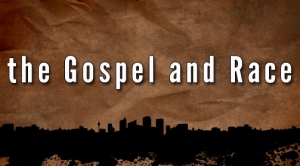
Did you know that together the United States of America and Canada have 451 unreached people groups* living within their borders? I didn’t know that until I read Strangers Next Door by J. D. Payne.
541 people groups. 28,945,173 persons (and that figure is from 2012!)
To put that number in perspective for you the total number of unreached people groups living in other Western Countries (Europe, Australia, New Zealand) is 632. The U.S. is the third largest country with unreached people groups in the world (China and India are numbers one and two).
I stumbled onto J.D. Payne by “accident.” Actually I know it wasn’t an accident, though I cannot for the life of me remember when I first heard his name. But over the last six months I have read a few of his books, listened to his podcast, and in the process have come to learn more about Diaspora Missiology. Diaspora Missiology is the integrated discipline of “bringing migration research to bear on the study of missions.” (p. 151)
At the heart of this is an understanding that God is absolutely sovereign in the movement of people across the globe. Payne writes: “as kingdom citizens we understand that the Lord of the nations is working our his will in the universe, and the migration of peoples to other lands is not a serendipitous occurrence.” (p. 30)
That means that the Congolese families that have been relocated to Palm Beach County as refugees are here because God brought them here. That means that my dear friend from West Africa is here, as an asylum seeker, because God orchestrated it in his plan. That means that the people who are coming to our church’s ESL program are in our country, and in our ESL program(!), because God ordained it to be so.
How should the Church of Jesus Christ respond to this amazing opportunity? Friendship. It is possible for us to befriend, serve, and witness to people who are unreached… and all we have to do is drive around town or walk across the street. What do we do with such an amazing opportunity?
Are we as followers of Jesus prepared for such wonderful opportunities to serve and share the only hope for abundant and eternal life? For the most part, I believe the church has neglected numerous similar opportunities in epochs past. Now we live in a time of unprecedented movement, and these are days of grand opportunity. The peoples of the world are now living next door to us. May be recognize the sovereign hand of the Lord who has moved them and join in his mission, that they may know him and make him know. (p. 94)
* An unreached people group is a group of people that has less than 2% claiming to be Christians.
